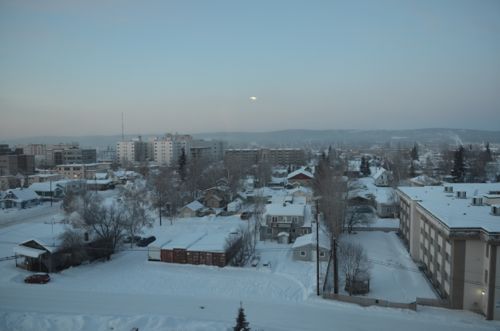Fairbanks vs. New York City
After traveling through 4 time zones and across thousands of miles (roughly 4200!), I arrived safely in Fairbanks, Alaska. We have been experiencing some pretty cold temperatures in New York this winter, but as I stepped outside the airport and felt my nose sting with 20 below air temperatures, I knew I had made it to the right place. I got into a taxi and drove down icy streets to my hotel. Looking out the window, I was amazed to be here. Let the adventure begin!

Going Through Phases in Alaska
When people get to experience very, very cold temperatures, there is a popular way to test out the elements: throwing hot water into the air. During my time with PolarTREC in Fairbanks, Alaska, I took advantage of the below-freezing temperatures to try out this famous test. It was only -17 degrees Fahrenheit, but I was still able to create snow from my cups of hot water. Watch the video below to see!
http://.be
Notice how the cold water did not turn in to snow, but the hot water did. Why is that? Post your answer to why you think hot water turns into snow but cold water doesn't in the comments section below and stay tuned to the next journal entry to see if you were right.
- < prev
- 32 of 32

Comments
Pagination